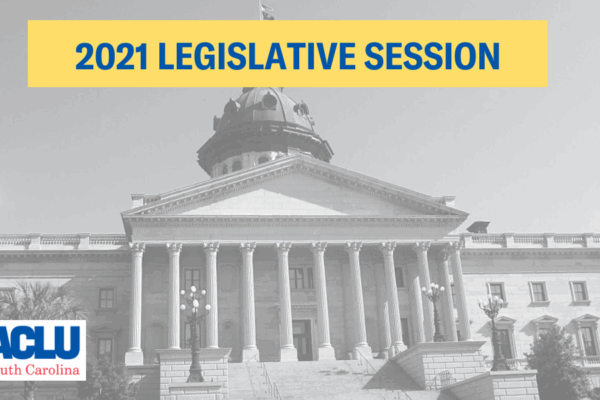Today, South Carolina legislators will debate an unconscionable bill. H. 3755 would make the electric chair the default method of execution in South Carolina if the director of SCDC certifies lethal injection is not available. Under current law, the person facing execution may choose between lethal injection and electrocution as the method of execution and lethal injection is the default method if the person does not choose between the two methods.
H. 3755 misses the underlying problem. It is unconscionable that legislators are debating methods of execution when South Carolina’s death penalty system is unreliable and arbitrary.
- South Carolina’s criminal justice system makes mistakes. Yet, capital punishment is irreversable. Since 1973, 174 people who were sentenced to death have been exonerated. When talking about the power of the state to kill, one error is unacceptable - 174 errors should shock the conscience of all. And, South Carolina’s death penalty system is not immune from error. South Carolina courts have convicted and sent at least two innocent people to its death row. In addition, South Carolina courts have wrongly convicted at least nine additional people since 1989 alone, including five for murder.
- Capital punishment is applied arbitrarily in South Carolina. Contrary to popular belief, capital punishment is not reserved for the “worst of the worst.” In reality, the likelihood of receiving a death sentence in South Carolina is not primarily based on the facts in your case, but rather on the race and gender of the victim, the location of the offense, and the Solicitor in office at the time of the offense. When the outcome of a capital case is driven by these arbitrary factors, equal justice under law, the cornerstone of our legal system, becomes a meaningless phrase.
In addition to being broken beyond repair, the death penalty is also expensive and ineffective.
- Capital punishment wastes money and misuses law enforcement resources. Cost studies consistently find that the death penalty system costs taxpayers at least 2 to 3 times more than a system of life without parole, with the majority of that cost being incurred at the initial trial level, whether or not the defendant is sentenced to death. As a recent study conducted for the Oklahoma Death Penalty Review Commission found, "[i]t is a simple fact that seeking the death penalty is more expensive. There is not one credible study, to our knowledge, that presents evidence to the contrary.” To make our communities safer, South Carolina should invest the resources saved by ending capital punishment into data-driven public safety solutions, like expanding substance abuse and mental health treatment programs.
- Capital punishment does not make South Carolinians safer. There is no evidence to show that the death penalty is a deterrent to murder - in our communities or in our prisons and jails. In fact, murder rates are substantially lower in non-death penalty states. Between 2010 and 2018 the murder rate was 20% lower in non-death penalty states compared to death penalty states. In addition, during the height of the “tough on crime era” a national poll of police chiefs found that the death penalty ranked as the least effective tool for reducing violent crime. Finally, despite leading the nation in the number of new death sentences (per capita), Alabama also leads the nation in prison homicides (per capita). The death penalty does not deter murder.
Instead of continuing to tinker with a death penalty system that is broken beyond repair, South Carolina legislators should repeal the death penalty.

